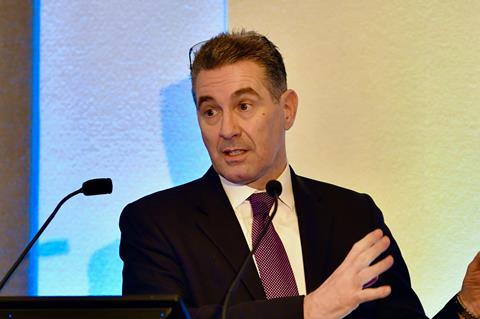At 16, the Solicitors Regulation Authority is a very different body from the one that spent almost all its time dealing with ‘fingers in the till’
It is a mark of the scale of the challenges facing the Solicitors Regulation Authority that one day this week to discuss them did not feel anything like enough. Around 800 compliance officers descended on Birmingham for the regulator’s annual conference and a whistle-stop tour of its in-tray. For those returning home, navigating the labyrinthine New Street station seemed a relative doddle compared with the task of ensuring compliance in law firms.
The SRA is a different beast from when it was formed 16 years ago. Investigations are as likely to concern personal behavioural issues, for example sexual misconduct, as ‘fingers in the till’; the regulator is front-page news when summoned to the Home Office for talks about immigration; and can be perceived as the government’s henchman for dealing with anti-money laundering. Then there is the prospect of unlimited fining powers – raised earlier this summer with ministers and front and centre of the regulator’s agenda.
All of which makes stretching existing resources a struggle. Chief executive Paul Philip admitted investigations are taking too long, a signal of the changing nature of its role.
‘When I started [in 2014] our caseload was 99% misappropriation of client funds,’ he said. ‘The caseload has changed beyond recognition… the way we handle those cases has to change too. Although I am pretty sure we are coming to the right outcomes we are not doing them in as timely a fashion as we should.
‘If we want to investigate [sexual misconduct reports] further the nature becomes quite complicated and we rely on spoken evidence which is not something that happened before.’

Another change in direction relates to the target of SRA investigations. The regulator was keen to link its request for unlimited fining powers with the ability to penalise partners who have allowed misconduct to happen on their watch.
‘Where we find people doing the types of things you shouldn’t be doing, I truly believe they should face personal accountability but also the partners in that firm must take some responsibility for self-regulation,’ Philip told delegates.
‘The types of people who know who the bad lawyers are, are you [compliance officers]. I would like to try and instil some degree of self-regulation and I would like to use fines to do that.’
The fining powers request was made in the midst of the undercover reporter sting by the Daily Mail into law firms and solicitors offering immigration services and appearing to coach clients on how to game the system.
This was followed by a summit meeting attended by home secretary Suella Braverman, justice secretary Alex Chalk and the SRA. It led to accusations that the regulator was doing the government’s anti-immigration bidding and putting its independence on the line – particularly when the opportunistic (and largely irrelevant) question of fining power was raised.
'Where we find people doing the types of things you shouldn’t be doing, I truly believe they should face personal accountability but also the partners in that firm must take some responsibility for self-regulation'
Paul Philip, SRA
SRA chair Anna Bradley was unrepentant, saying she was ‘proud’ of the regulator’s swift actions, even if it might have looked like it was dancing to the government’s tune. ‘Acting swiftly when evidence is put in front of us is what a regulator should do and we shouldn’t be scared by the fact it is happening in a highly politicised environment,’ she said.
Where the SRA definitely has to do the government’s bidding is in enforcing AML regulations. This has proved to be a constant problem, with law firms – most of them inadvertently, it was acknowledged – still failing to meet requirements.
This will mean automatic fixed penalty fines – hitherto reserved for administrative mistakes – are considered for AML non-compliance as the SRA tries to hammer home the message.
‘I honestly believe the vast majority of solicitors are not doing it [non-compliance] deliberately and you are busy people,’ Philip said. ‘But it is an important element and we are going to be coming down harder.’
A warning notice was published the day after the conference, urging firms to do more to properly assess money laundering risks posed by clients and the services being offered.
Of 30 firms recently visited by the SRA, most considered client and matter risk together in a single document, but failed to complete them comprehensively. A review of client files found fewer than half had documented client/matter assessments.
All in all, it’s a massive to-do list – but the list may get even longer if the SRA takes over regulation of legal executives. Philip insisted this amounts to a ‘tidying up exercise’.
Delegates leaving Birmingham might think the regulator has quite enough to do without angling to expand its empire still further.
This article is now closed for comment.































11 Readers' comments